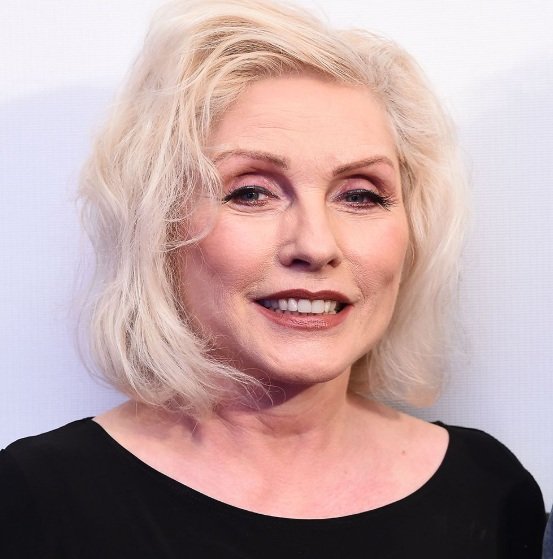Debbie Harry, the iconic voice of Blondie and new wave

Figura esencial de la música contemporánea, Debbie Harry transformó la escena del rock con Blondie y marcó generaciones con su estilo audaz.
Debbie Harry, born in 1945 in Miami, is one of the most influential figures in contemporary music. As the lead singer of Blondie, she redefined punk and new wave with a bold aesthetic and an unmistakable voice. Her ability to blend genres, her iconic image and her versatility as an actress and soloist made her a cultural pioneer. With more than five decades of career, her legacy continues to inspire new generations.
Early life and formative years
Deborah Ann Harry was born on July 1, 1945, in Miami and was adopted at three months old by a New Jersey family. From a young age, she showed a natural inclination toward art and creative expression. In her youth, she worked as a secretary, waitress and go-go dancer, which brought her closer to New York’s counterculture. This stage shaped the bold and rebellious character that later defined her unique style in the music industry.
Musical beginnings
Before international fame, Harry began her musical path with The Wind in the Willows, a psychedelic group that released one album in 1968. Later she joined the underground band The Stilettos, performing in New York’s alternative clubs. There she connected with the punk scene at CBGB, a legendary venue of the era that gathered artists like The Ramones, Patti Smith and Television. These early years prepared her for the leap into the spotlight.
The foundation of Blondie
In 1974, Debbie Harry and Chris Stein founded Blondie, a band that fused punk, pop, reggae and disco. Thanks to Harry’s distinctive voice and striking image, Blondie quickly stood out within New York’s scene. Their daring aesthetic and ability to merge genres positioned the band as pioneers of new wave, opening the door for alternative music to reach mainstream audiences. Blondie became a symbol of innovation and rebellion.
International breakthrough
The major turning point came with Parallel Lines in 1978, which included Heart of Glass, a track that combined disco with punk. The song reached number one in several countries and established Blondie as a global phenomenon. Later hits like Call Me, created with Giorgio Moroder, and Rapture, considered the first pop hit to include rap, reinforced Harry’s image as an innovative and versatile artist capable of shaping the direction of modern music.
Solo career
In 1981 she released KooKoo, her debut solo album, produced by Nile Rodgers and Bernard Edwards of Chic. While it did not reach Blondie’s popularity, the record showcased her interest in experimenting with new sounds, from funk to electronic. Over the years, Harry continued to release solo projects and collaborate with diverse musicians, proving her constant creative drive while staying true to the band that launched her to stardom.
Acting career
Beyond music, Debbie Harry built a career in film and television. She stood out in David Cronenberg’s Videodrome (1983), taking on a daring role in a film exploring media and power. She also appeared in John Waters’ Hairspray (1988), reinforcing her image as a versatile figure who could navigate both independent and commercial productions. Her charisma on screen expanded her artistic reach beyond music into acting.
Recognition and legacy
In 2006, Blondie and Debbie Harry were inducted into the Rock and Roll Hall of Fame, a milestone that honored their impact on music history. Her legacy is reflected in artists like Madonna, Gwen Stefani and Lady Gaga, who have cited her as inspiration. The fusion of genres, her bold aesthetic and her leadership as a woman in rock made her an essential reference for alternative music and international pop culture.
Controversies
Throughout her career, Debbie Harry faced criticism for her provocative image and for challenging gender norms in a male-dominated industry. In the 1970s and 1980s, some dismissed her use of sensuality as strategy, though it was later reinterpreted as empowerment. She was also linked to the excesses of New York’s punk scene, yet showed resilience by keeping her career alive and relevant for more than five decades.
Style and cultural influence
The platinum hair, bold makeup and mix of sensuality with rebellion defined Debbie Harry as a style and fashion icon. Her presence on stage and in magazines went beyond music, shaping the aesthetics of new wave and influencing designers of the era. Her ability to turn her image into a creative resource set a precedent for artists who understood the power of combining music, fashion and attitude into one artistic vision.
Current relevance
Today, at over 70 years old, Debbie Harry continues to perform with Blondie in international tours and renowned festivals. The band maintains a loyal fan base and continues releasing music that resonates with new generations. Her ability to remain relevant in an ever-changing industry is proof of her lasting talent and influence. Her voice, her style and her legacy continue to shape contemporary music and culture.







